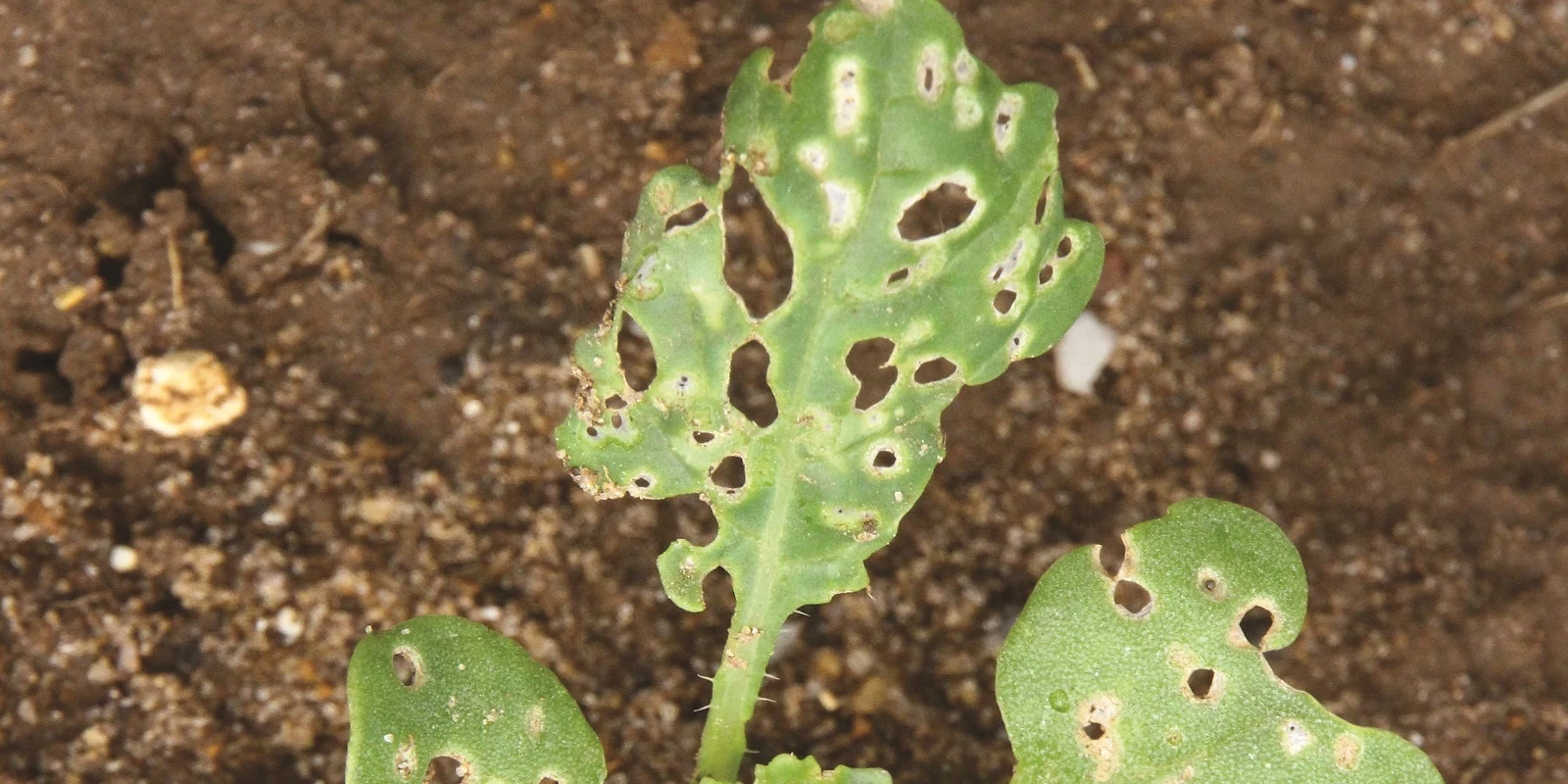
Author
| 15th August 2024Tags
Long-term grower study highlights impact of CSFB on OSR success
Cabbage stem flea beetle pressure has a much greater impact on OSR success than soil moisture conditions at sowing, highlights five years of national crop benchmarking with growers across the country.
Altogether the Dekalb study, conducted at the same time each April by Bayer, brings together the experiences of 900 growers responsible for more than 93,000 hectares of oilseed rape.
Across the five very different seasons covered by the study there is a much bigger difference in the proportion of crops taken to harvest between light and heavy CSFB pressure than between poor and good moisture conditions, clearly illustrating the relative importance of pressure from the pest (Figure 1).
Figure 1: Average Crop Success by Establishment Pressures 2019/20 to 2023/24


Source: Dekalb National OSR Benchmarking Studies 2020 - 2024; Bayer, June 2024
The study shows average crop establishment scores improving noticeably in the lower CSFB pressure seasons of 2020/21 and 2021/22 compared to the last really challenging CFSFB season of 2019/20, before falling back slightly in 2022/23.
At an average 6.1 out of 10 this past season, the average crop establishment score was the lowest on record, despite noticeably less autumn CSFB pressure than 2019/20, possibly reflecting rather later drilling and poorer conditions on many farms (Figure 2).
Figure 2: Average Crop Establishment 2019/20 to 2023/24

Source: Dekalb National OSR Benchmarking Studies 2020 - 2024; Bayer, June 2024
Overall, however, 73% of the 2023/24 crops were considered good enough to take through to harvest (Figure 3).
Figure 3: Average Crop Success 2019/20 to 2023/24

Source: Dekalb National OSR Benchmarking Studies 2020 - 2024; Bayer, June 2024
“The fact that this figure is markedly better than 2019/20, when just 61% of crops were taken to harvest, is almost certainly due to better crop growth and development in the milder, wetter winter,” says Bayer technical manager Ellie Borthwick-North. “Interestingly too, growers reported much lower levels of spring larvae than the last really bad CSFB season. “Given the differences in resilience the study has highlighted between variety types, this is also likely to be associated with the much greater use of hybrid varieties recorded in recent years.”
With the critical influence of CSFB levels on crop success, it is hardly surprising that almost 90% of growers in the latest Dekalb study see the ability to accurately monitor and record autumn pressure from the pest automatically would be valuable in informing decisions around crop management.
“The data from our new Magic Trap tool which does just this looks like being particularly valuable in enabling effective early decisions based on likely crop success, especially when used alongside October establishment scoring,” adds Ms Borthwick-North.